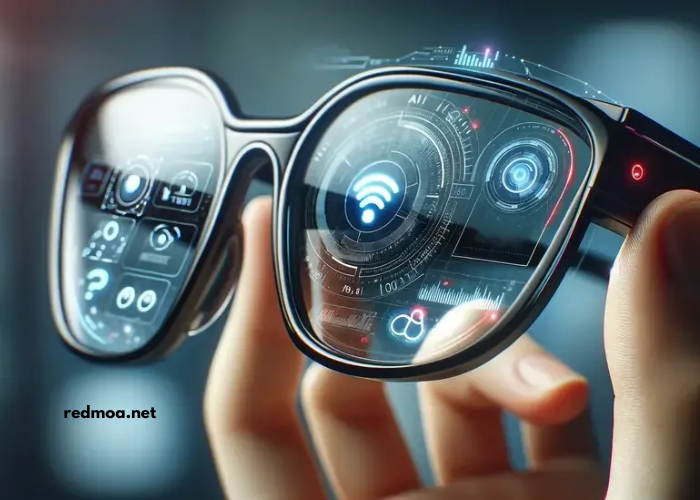In 2025, technological advancements are not just pushing the boundaries of what we know—they’re redefining industries, creating new markets, and transforming our everyday lives. From artificial intelligence (AI) breakthroughs to quantum computing, the technology landscape is evolving at a rapid pace. This article delves into some of the most innovative technological developments shaping the future of 2025, offering insights into how they will impact various sectors and change the way we interact with the world.
1. Artificial Intelligence: Revolutionizing Every Industry
Artificial intelligence has been a topic of interest for decades, but its real-world applications are now becoming more widespread and sophisticated. By 2025, AI will be deeply integrated into business operations, personal devices, and everyday processes, driving efficiencies and creating opportunities for automation.
AI in Healthcare
AI’s most significant impact in healthcare lies in improving patient care and streamlining operations. Machine learning algorithms will assist in early diagnosis, treatment planning, and drug discovery. In fact, AI will empower healthcare professionals to predict medical conditions based on vast datasets, leading to quicker, more accurate diagnoses and personalized treatment plans.
AI in Business and Automation
For businesses, AI will optimize operations by automating routine tasks, managing customer relationships, and providing valuable insights through predictive analytics. The future of AI-powered automation will lead to more cost-effective operations, allowing companies to focus on innovation and growth.
AI and Natural Language Processing
The continued evolution of natural language processing (NLP) will result in more seamless communication between humans and machines. With NLP, AI will be able to understand, interpret, and respond to human language in ways that were once thought impossible, making voice assistants, customer service bots, and even AI-generated content more intelligent and intuitive.
2. Quantum Computing: The Next Frontier in Processing Power
Quantum computing is poised to change everything we know about computational power. While still in its infancy, quantum computing has the potential to solve complex problems that are currently beyond the reach of classical computers. By 2025, advancements in quantum hardware and algorithms could dramatically accelerate research in areas such as materials science, cryptography, and drug development.
Quantum Computing in Research and Development
In fields like pharmaceuticals, quantum computing could simulate molecular structures at unprecedented speeds, dramatically shortening the drug discovery process. In materials science, researchers could use quantum computers to design new materials with specific properties for industries like aerospace, energy, and manufacturing.
Quantum Cryptography
Another promising application is in quantum cryptography. Quantum encryption methods are nearly impossible to break, which will have profound implications for data security. As cyber threats continue to evolve, quantum encryption could offer the next generation of secure communication channels for governments, corporations, and individuals.
3. 5G and Beyond: Transforming Connectivity
5G technology is already being deployed globally, and by 2025, it will have become the standard for wireless communication. This next generation of cellular networks will deliver lightning-fast internet speeds, ultra-low latency, and an unparalleled capacity for connecting devices.
Impact on the Internet of Things (IoT)
With the massive bandwidth improvements that 5G offers, IoT devices will be able to communicate with one another more efficiently than ever before. Smart homes, cities, and factories will become even more interconnected, with millions of devices communicating in real-time to optimize energy usage, monitor systems, and improve quality of life.
The Role of 5G in Autonomous Vehicles
One of the most exciting uses of 5G technology is in autonomous vehicles. With ultra-low latency and fast communication speeds, self-driving cars will be able to share information with each other and with infrastructure (such as traffic lights) in real-time, making driving safer and more efficient.
4. Blockchain and Decentralized Systems: The Future of Digital Trust
Blockchain technology, originally created for cryptocurrencies like Bitcoin, is finding use in a variety of industries. By 2025, blockchain will be essential for enhancing digital trust and transparency in sectors such as finance, supply chain management, and healthcare.
Blockchain in Finance
In the financial sector, blockchain technology is enabling faster, more secure transactions with reduced fees. By eliminating intermediaries, blockchain offers the potential for more decentralized and efficient financial systems, including decentralized finance (DeFi) platforms that allow users to manage investments without relying on traditional banks.
Blockchain in Supply Chain Management
Blockchain’s ability to securely track the movement of goods makes it ideal for enhancing transparency in supply chains. By recording every transaction on an immutable ledger, companies can ensure the authenticity of products, verify ethical sourcing, and reduce fraud and waste.
Blockchain in Healthcare
In healthcare, blockchain can be used to securely store patient data, ensuring privacy and improving data sharing between medical professionals. Patients could control their own health records, granting access only to those they trust.
5. Virtual Reality and Augmented Reality: Transforming How We Experience the World
Virtual Reality (VR) and Augmented Reality (AR) are increasingly becoming part of our daily lives, especially as the technologies continue to improve in terms of immersion, realism, and usability. By 2025, VR and AR will have expanded beyond gaming and entertainment to transform industries such as education, real estate, and healthcare.
VR and AR in Education
Virtual and augmented reality are revolutionizing how we learn by providing immersive educational experiences. In the classroom, VR can take students on virtual field trips or immerse them in historical events, while AR can enhance learning materials by overlaying additional information on physical objects. These technologies can also play a role in corporate training, where employees can practice real-world scenarios in a safe, controlled virtual environment.
VR and AR in Healthcare
In healthcare, VR and AR will enable medical professionals to simulate surgeries, train on complex procedures, and visualize anatomy in 3D. For patients, AR can help with rehabilitation by providing interactive exercises that encourage movement and progress tracking.
VR and AR in Real Estate
In real estate, VR and AR are transforming the way properties are showcased. Potential buyers can take virtual tours of homes, view properties from different angles, or even visualize design changes in real-time using AR.
6. Biotechnology: Merging Biology with Technology
Biotechnology is a field that has seen incredible growth over the last few decades, and by 2025, it is expected to have even more profound implications for human health and the environment. Innovations in genetic engineering, bioinformatics, and synthetic biology are paving the way for breakthroughs in medical treatments, agriculture, and environmental sustainability.
Gene Editing and CRISPR
Gene-editing technologies, particularly CRISPR-Cas9, are enabling scientists to make precise changes to DNA, with the potential to cure genetic disorders, improve crop resilience, and even combat diseases like cancer. By 2025, CRISPR and other gene-editing technologies will likely become mainstream in both medicine and agriculture.
Sustainable Agriculture and Food Production
With the global population continuing to rise, biotechnology will play a critical role in ensuring food security. Genetically modified crops that are resistant to pests, diseases, and environmental stress will increase yields and reduce the need for harmful pesticides. Additionally, lab-grown meats and alternative protein sources may revolutionize the way we produce and consume food, reducing the environmental impact of traditional farming.
Environmental Sustainability through Biotechnology
Biotechnology will also drive environmental sustainability by developing new ways to clean up pollution, convert waste into energy, and create bio-based materials. By using biological processes to address environmental challenges, biotechnology could play a pivotal role in mitigating climate change.
7. Robotics: The Future of Automation and Human-Machine Collaboration
Robotics has made significant strides in recent years, and by 2025, robots will become more autonomous, intelligent, and integrated into various industries. The use of robotics will extend far beyond manufacturing and logistics to fields like healthcare, agriculture, and even customer service.
Robotics in Healthcare
In healthcare, robots are already being used for surgeries, rehabilitation, and even elderly care. By 2025, advancements in robotics will allow for more precise, minimally invasive surgeries, assistive devices for patients with mobility challenges, and robots that provide companionship and care for the elderly.
Robotics in Agriculture
In agriculture, robots will play a major role in harvesting crops, planting seeds, and monitoring crop health. With precision farming, robots can increase yields while reducing the need for chemicals, offering a more sustainable solution to food production.
Human-Machine Collaboration
Robots and AI will not only replace human workers in certain tasks but will also work alongside them, creating new opportunities for collaboration. In industries like manufacturing, logistics, and construction, robots will take on dangerous or repetitive tasks, allowing humans to focus on more complex and creative work.
Conclusion: Embracing the Future of Technology
As we approach 2025, it is clear that technology will continue to shape and transform nearly every aspect of our lives. From AI and quantum computing to robotics and biotechnology, the innovations of tomorrow will drive change across industries and open new frontiers for human potential. While some challenges—such as ethical considerations and data privacy—must be addressed, the opportunities for innovation are vast.
For businesses and individuals, staying informed and adapting to these technological advancements will be essential for thriving in a rapidly evolving world. By embracing these changes and leveraging the power of innovation, we can look forward to a future where technology enhances our capabilities, solves global problems, and improves the quality of life for people everywhere.





